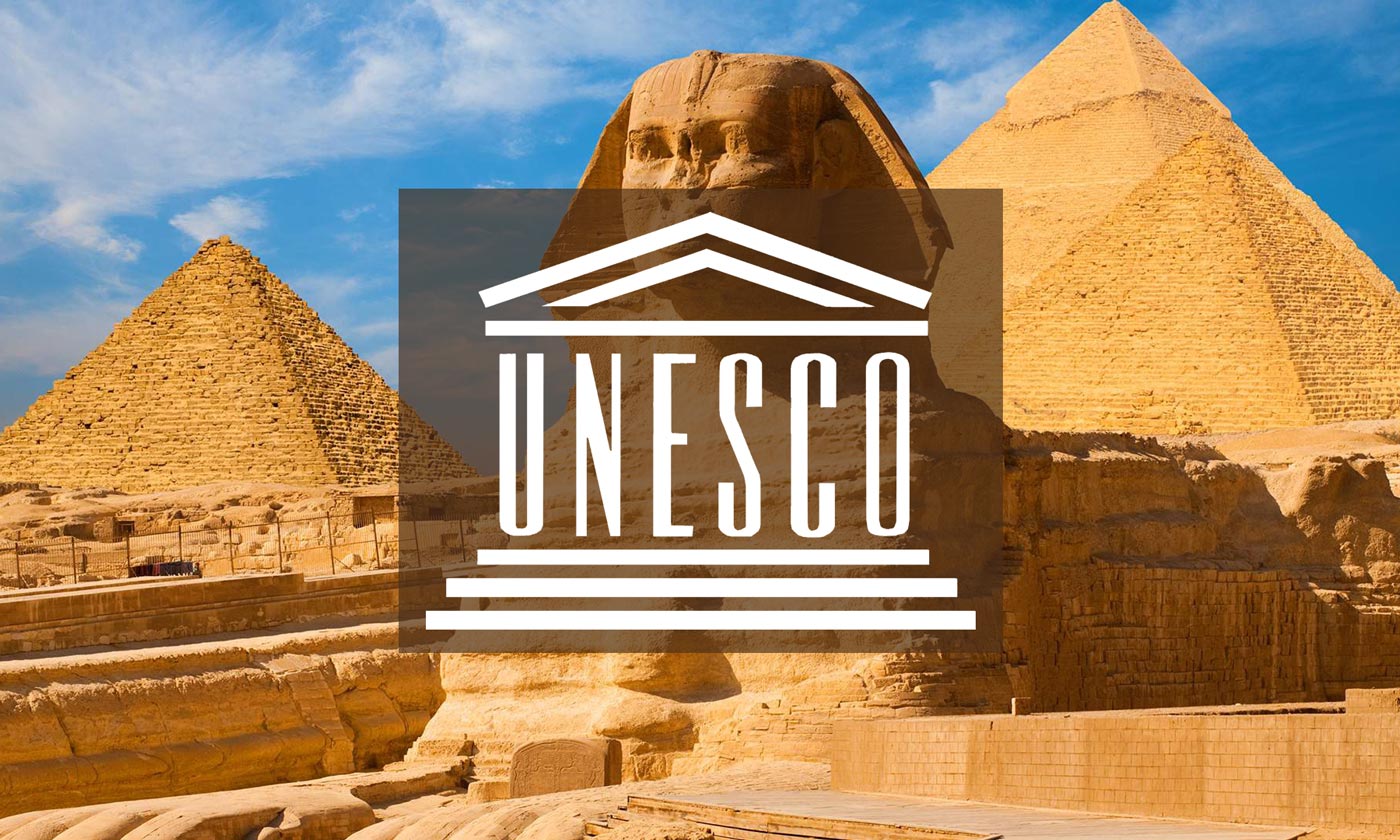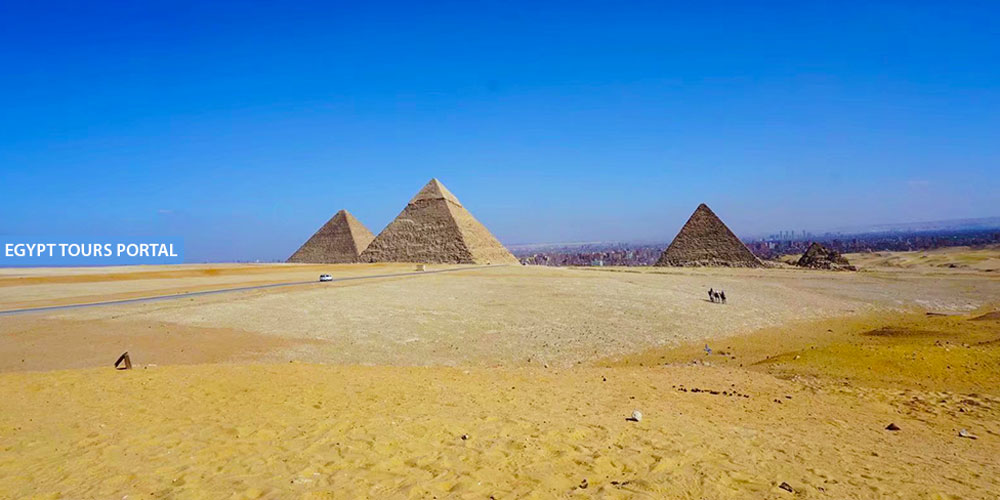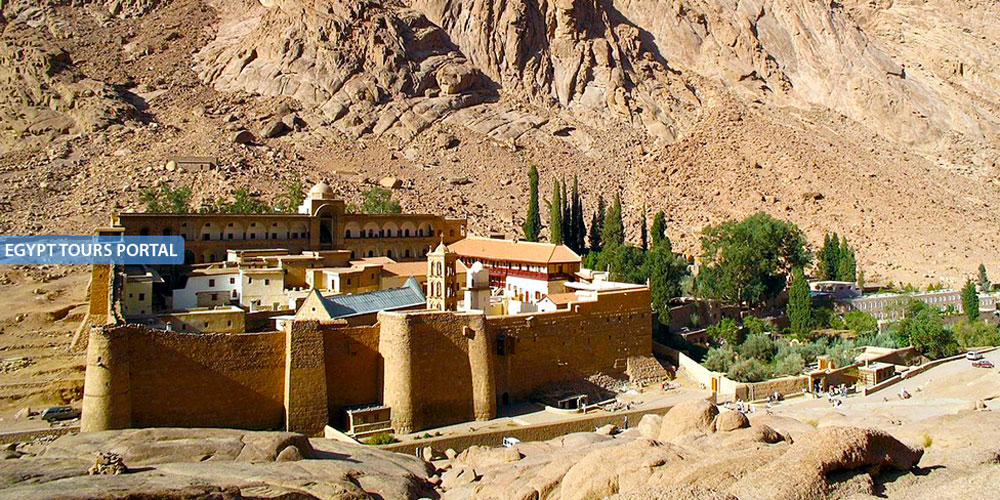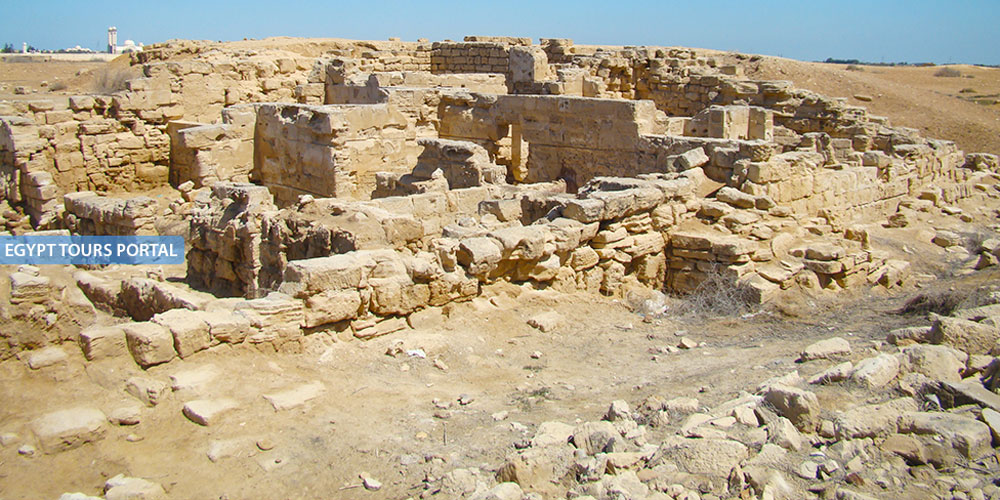
UNESCO World Heritage Sites In Egypt are hidden gems located all over Egypt which has always been known for being the land of heritage and culture. It would take forever to fully explore the infinite amount of history and beauty these magical attractions have to offer. The United Nations Educational, Scientific and Cultural Organization, better known as UNESCO, chooses many locations around the globe as World Heritage Sites for their cultural, historical, scientific, or natural importance, and these sites are protected by international treaties.
In this article is all the facts and information about the Unesco heritage sites of Egypt provided by our knowledgeable professionals ETP team who gathered all the important information needed to discover the wonders of Egypt. Every seeker for culture, history, art, and knowledge in Egypt will find the answers to very important questions which are:
Is Egypt a member of Unesco?
Egypt is a member of the Unesco and a member of the first scientific reference to the UNESCO Charter which are 61 countries including Egypt which works for the Protection of Underwater Cultural Heritage, where the committee provides expertise and scientific advice to the Member States. As a member of the UNESCO, Egypt worked to safeguard the cultural heritage of humanity through rescuing the temples of Philae, Abu Simbel, and many others.
How many Unesco sites are in Egypt?
Egypt has a total of 7 UNESCO World Heritage Sites. The majority of these are of cultural significance, except for one has made the list thanks to its importance in natural history. Three of the sites date back to the Old Kingdom of Egypt from 2575 BC to 2150 BC.
What heritage sites are determined by Unesco can be found in Egypt?
The Seven UNESCO World Heritage Sites include:
Egypt is probably the oldest civilization on the face of the earth dating back to more than 5000 years and also one of the few nations which have left a big mark on people's hearts and minds for countless generations. Egypt's legacy goes back to more than 5000 years filled with happiness and agony; each era had its own unique transformation and factors that greatly influenced the ages. Egypt’s cities and monuments are enchanting portraits reflecting the grandeur of ancient Egyptian History. Here is a detailed guide to all of Egypt’s UNESCO World Heritage Sites:
 Cairo city is the heart and capital of Egypt and the largest city in the Arab world, Africa, and the Middle East. Cairo is 160 km inland from the great Mediterranean Sea and 135 km from the red sea. the history of Cairo goes back to more than 1400 years, it has various names through history as in 640AD the Arabic commander ‘Amr ibn al-As’ called it al-Fustat and become the first capital of Islamic Egypt and the home of the mosque of Amr Ibn Al-as in the same year to be the first mosque in the history of Egypt and Africa.
Cairo city is the heart and capital of Egypt and the largest city in the Arab world, Africa, and the Middle East. Cairo is 160 km inland from the great Mediterranean Sea and 135 km from the red sea. the history of Cairo goes back to more than 1400 years, it has various names through history as in 640AD the Arabic commander ‘Amr ibn al-As’ called it al-Fustat and become the first capital of Islamic Egypt and the home of the mosque of Amr Ibn Al-as in the same year to be the first mosque in the history of Egypt and Africa.
Then, it became the capital of the Fatimid dynasty and a famous trade center under the name Cairo or Al- Qahirah. It contains the famous churches that tracked the footsteps of the holy family across Egypt like the beautiful Hanging Church and Abu Serga church. The city of Cairo houses many mosques like the Al Azhar mosque which was built in 970 AD to be one of the major colleges in Egypt and the Arab world plus many majestic mosques from different time periods like Ibn Tulan and Sultan Hassan mosques.
One of Egypt's most incredible attractions is the house of power the Cairo citadel was constructed by Saladin in 1183 to become one of the most powerful fortresses during the Medieval Islamic era. The ever-lasting beautiful city of Cairo was inducted into the Unesco heritage sites in 1979. Next to Cairo is the glorious city of Giza home of the Great Pyramids of Giza.
 Now, it's no wonder that the three great pyramids were inducted into the Unesco heritage sites in 1979. There are between 80 and 138 identified Egyptian pyramids that were considered to be tombs for the kings of the old kingdom, and it is possible that there are more lost pyramids hidden beneath the sands of Egypt.
Now, it's no wonder that the three great pyramids were inducted into the Unesco heritage sites in 1979. There are between 80 and 138 identified Egyptian pyramids that were considered to be tombs for the kings of the old kingdom, and it is possible that there are more lost pyramids hidden beneath the sands of Egypt.
They are the symbols of the ancient Egyptian civilization, located within the majestic pyramids complex in Giza with the sole guardian of Egypt the sphinx. The complex contains the Great Pyramid of Giza for pharaoh Khufu a.k.a Cheops (2589 BC-2566 BC), known for being one of the Seven Wonders of the Ancient World as is the biggest man-made construction ever made in ancient history at the height of 146.5 m since more than 3.800 years in only 20 years to be the final resting place pharaoh Khufu.
The pyramid of Khafre is the second tallest pyramid built in the 4th dynasty to hold the tomb of pharaoh Khafre (2558-2532 BC) who is known for constructing the sphinx, the world’s biggest and oldest statue after his own image. The pyramid of Menkaure (2532 BC- 2500 BC) is the smallest of the three pyramids that were built in 2510 BC.
Just 20 km south of Giza lies Egypt’s first capital Memphis (2686-2181 BC) which was the center of power, culture, religion, and art from the ancient Egyptian civilization in the old kingdom (2686- 2181 BC) and lost its stature in the new kingdom (1570-1050 BC) after the capital was moved to the city of Thebes.
Some might ask what are the most important pyramids in Egypt? and the answer is that there are other important Egyptian pyramids located all over Giza which include: The Pyramid of Djoser (or Step Pyramid, located in the Saqqara necropolis) The Pyramid of Unas (Saqqara) The Bent Pyramid (Dahshur necropolis) The Red Pyramid of Dahshur (Dahshur) The Black Pyramid (Dahshur) The Meidum Pyramid (62 miles south of Cairo) The Pyramid at Hawara Memphis was the witness to the glory of the old kingdom and the construction of more than 100 pyramids including the great three.
It contains some of the oldest pyramids in the history of Egypt mostly from the old kingdom until the end of the 13th dynasty of the Middle Kingdom. the city name was originally Men-Nefer meaning enduring and beautiful then was changed to Memphis by the greek. The city became the heart for the religious life of ancient Egypt as it was the home of the temple of the holy triad of the creator god Ptah, his wife Sekhmet, and their son Nefertem.
There were also other temples for deities like Aton, Hathor, and many more. Everything started in the Dahshur area the home of the red Pyramid, it is a royal Necropolis in the desert 40 km (25 mi) south of Cairo on the west bank of Egypt. Head to the deep south in the mythical city of Aswan
 The city of Aswan has been always known to be the place of power and miracles. It acted as the southern border frontier to Egypt and the gateway to the heart of Africa. The city contains some of the most hypnotic monuments in history like the miraculous Abu Simbel which was built by Ramsess II between 1244 and 1224 BC to immortalize his great victory in the battle of Kadesh in 1274 BC and his long legacy.
The city of Aswan has been always known to be the place of power and miracles. It acted as the southern border frontier to Egypt and the gateway to the heart of Africa. The city contains some of the most hypnotic monuments in history like the miraculous Abu Simbel which was built by Ramsess II between 1244 and 1224 BC to immortalize his great victory in the battle of Kadesh in 1274 BC and his long legacy.
The Abu Simbel Temples are the personification of the glory of the new kingdom of ancient Egypt, it is on the west bank of the Nile, 230 km(140mi) southwest of Aswan on the western bank of Lake Nasser where it was carved on the face of a rocky mountain. Ramsess also honors the gods like Amun, Ptah, Re-Hor-Akhty to order to his good fortune and graces in the mortal and the immortal life.
The temple was celebrated at the sun festival when the sun enters the Abu Simbel and illuminates the face of the four statues of Ramsess II, Ptah (God of creation), Amun (The Creator God), and Ra (Sun God) on the 22 of February and October. The temples were in danger by the rising waters of the Aswan high dam. The temple was saved by UNESCO in the 60s in the most challenging archeological rescuing operation in history which took four years from 1964 to 1968 and in 1979 was inducted in the UNESCO heritage sites.
One of the most beautiful constructions is the Philae temple which was constructed between 380-362 BC by king Ptolemy II and many other kings from the Ptolemaic Era on a rocky island known for being a trade center in the middle of the river Nile south of Aswan, known as “Apo” that means Ivory and also by the Greek name “Elephantine”. The temple was the house of worship for “Isis” the goddess of Motherhood, healing, and birth. The temple was relocated by Unesco as a part of a rescue operation in the 60s. Discover the glory of the kings and queens in the golden city of Thebes.
 Some might ask, Is Luxor a UNESCO world heritage site? then the answer is yes, as the majestic city of Thebes is known today as Luxor which is one of the few cities that had the honor of serving as the capital of Egypt during the new kingdom (1570-1069 BCE) from the 11th to the 18th dynasty. It is located east of the Nile River about 500 mi (800 KM) and 419 mi (675 km) south of modern Cairo.
Some might ask, Is Luxor a UNESCO world heritage site? then the answer is yes, as the majestic city of Thebes is known today as Luxor which is one of the few cities that had the honor of serving as the capital of Egypt during the new kingdom (1570-1069 BCE) from the 11th to the 18th dynasty. It is located east of the Nile River about 500 mi (800 KM) and 419 mi (675 km) south of modern Cairo.
The city was acted as the seat of the rule and the center of religious activities and a cultural center. Thebes was able to charm many travelers with its allure and grandeur for countless generations as the greek poet homer called it the city with a thousand gates and The city's name is derived from the Greek word "Thebai". It was known as the city of Amon because it contained the worship house of the God Awn and the main location for many festivals like the famous festival of Shemu & Opet.
After the city was freed from the Hyksos between (1530-1520 BC) and many pharaohs constructed many monuments all across it to showcase the enchanting glory of Thebes and immortalize their names and legacy in History. The city is holding several monuments for each pharaoh from the 18th dynasty in the new kingdom who worked tirelessly to establish a great powerful kingdom whose name will last forever.
The holy Karnak temple is probably the most famous temple in the history of ancient Egypt, it was constructed by Amenhotep III (1353-1279 BC) as a worship center for many deities mainly the holy triad of the creator god Amun-re, the goddess of balance and truth Mut and the moon god Khnosu. In the heart of Luxor's mountains lies the royal Valley of the Kings which holds the tombs of more than 60 kings of the new kingdom while the valley of the queens was the home of the wives of the pharaohs.
Thebes contain the nobles' valley that was constructed for 500 individuals who worked as governors or tax collectors or a form of nobility. Amenhotep III was also responsible for the construction of the Luxor Temple the centerpiece of the Opet festival that was dedicated to the rejuvenation of kingship, the Luxor also saw the crowning of many kings like Alexander the Great. At the entrance of Luxor lies two massive statues of Amenhotep III guarding the entire city. Thebes holds the beautiful temple of Hatshepsut which is a great example of the brilliant architecture of the new kingdom. The city of Thebes was inducted into the Unesco heritage cities in 1979. Explore how the evolution of whales took place millions of years ago.
 One of the most uncommon pieces of information about Egypt is that it is the home to hundreds of fossils of Archaeoceti (an extinct sub-order of whales), which helped explain the Evolution of whales. It is a paleontological site measuring 20,015 ha (49,460 acres) that was chosen as a UNESCO World Natural Heritage Site in July 2005.
One of the most uncommon pieces of information about Egypt is that it is the home to hundreds of fossils of Archaeoceti (an extinct sub-order of whales), which helped explain the Evolution of whales. It is a paleontological site measuring 20,015 ha (49,460 acres) that was chosen as a UNESCO World Natural Heritage Site in July 2005.
The fossils are located at Wadi Al-Hitan (whale Valley) which is in Faiyum governorate some 150 kilometers (93 mi) south-west of Cairo. The site was able to offer evidence and explanations on how the evolution of whales and the rise of the whale as an ocean-going mammal from a land-based animal in the previous life.
The place is truly highly important as no place in the world has the same number, concentration, and quality of such fossils across a very attractive, accessible, and protected area plus it holds many fossils in the best possible condition of other animals like sharks, crocodiles, and rays which makes it possible to reconstruct the surrounding environmental and ecological conditions of that time period and track their evolution. Cast your eyes on the divinity of the saint Catherine Area.
 Saint Catherine area has always been one of Egypt’s holiest places as it holds one of the oldest function Christian monasteries in the world. The Area dates back to the 16th century BC where it was a province to the ancient Egyptian kingdom providing precious stones like turquoise, copper, and gold and held a number of temples dedicated to Hathor the goddess of love and beauty.
Saint Catherine area has always been one of Egypt’s holiest places as it holds one of the oldest function Christian monasteries in the world. The Area dates back to the 16th century BC where it was a province to the ancient Egyptian kingdom providing precious stones like turquoise, copper, and gold and held a number of temples dedicated to Hathor the goddess of love and beauty.
The city is located near the el Tur Mountains at an elevation of 1,586 Meters above sea level. Saint Catherine Area is a place of great cultural and historical importance to the world's three major Abrahamic religions, Christianity, Islam, and Judaism. The famous Monastery of Saint Catherine the Sacred Monastery of the God-Trodden Mount Sinai and the Monastery of the Transfiguration is located on the summit of Mount Horeb where Moses received the Ten Commandments.
It was constructed 527 AD by the Byzantine emperor Justinian I around the chapel of the divine burning bush ordered by empress consort Helena ( Mother of Constantine the Great) on the site where mosses have seen Holy burning bush. It houses some of the most enchanting artifacts, icons, and documents from the Byzantine and Roman periods plus a marvelous 12th-century painting of the Ladder of Divine Ascent. The monastery was inducted into the UNESCO world heritage site in 2002. Observe one of the oldest Christian structures on the face of the earth.
 The Abu Mena is the burial site of the early Christian martyr Menas of Alexandria, a monetary complex dating back to the 4th century AD filled with several churches, a basilica, and Roman baths, and a Christian pilgrimage center for Christians seeking miracles and healing. It is located near the Mediterranean coast in the north, about 50 km (31 mi) southwest of Alexandria.
The Abu Mena is the burial site of the early Christian martyr Menas of Alexandria, a monetary complex dating back to the 4th century AD filled with several churches, a basilica, and Roman baths, and a Christian pilgrimage center for Christians seeking miracles and healing. It is located near the Mediterranean coast in the north, about 50 km (31 mi) southwest of Alexandria.
Most of the original structure has disappeared over time and there are very few standing remains, but the foundations are well-preserved, including crypts, baths, and underground rooms, most major buildings like the great basilica are still visible.
The monastery was inducted as a world heritage site in 1979 and was added to the list of endangered world heritage in 2001 but after reinforcing the bases of important structures with sand and the removal of the water from the soil using dug drainage trenches and pumps, the site was removed from the World Heritage in Danger list in 2009.
| Name of Attraction | Year of Entry | Type |
|---|---|---|
| Abydos, city of pilgrimage of the Pharaohs | 2003 | Cultural Heritage |
| Alexandria, ancient remains, and the new library | 2003 | Cultural Heritage |
| Bird Migration Routes | 2003 | Natural Heritage |
| Dababiya | 2008 | Natural Heritage |
| Dahab | 1994 | Cultural Heritage |
| Dahshour archaeological area | 1994 | Cultural Heritage |
| Desert Wadis | 2003 | Natural Heritage |
| Egyptian Museum in Cairo | 2021 | Cultural Heritage |
| El Fayoum | 1994 | Cultural Heritage |
| El-Gendi Fortress | 1994 | Cultural Heritage |
| Gebel Qatrani Area, Lake Qaroun Nature Reserve | 2003 & 2023 | Mixed Heritage |
| Great Desert Landscapes | 2003 | Natural Heritage |
| Helwan Observatory | 2010 | Scientific Heritage |
| Historic quarters and monuments of Rosetta/Rachid | 2003 | Cultural Heritage |
| Kharga Oasis and the Small Southern Oases | 2015 | Mixed Heritage |
| Minia | 1994 | Cultural Heritage |
| Mountain Chains | 2003 | Natural Heritage |
| Necropolises of Middle Egypt | 2003 | Cultural Heritage |
| Newibah castle | 1994 | Cultural Heritage |
| North Sinai archaeological Sites Zone | 1994 | Cultural Heritage |
| Oasis of Fayoum | 2003 | Cultural Heritage |
| Pharaon Island | 1994 & 2003 | Cultural Heritage |
| Pharaonic temples in Upper Egypt | 2003 | Cultural Heritage |
| Raoudha Nilometre in Cairo | 2003 | Cultural Heritage |
| Ras Mohammed | 2002 | Natural Heritage |
| Rutho Monastery | 1994 | Cultural Heritage |
| Siwa archaeological area | 1994 | Cultural Heritage |
| Southern and Smaller Oases, the Western Desert | 2003 | Natural Heritage |
| Temple of Hator built by Ramses III | 1994 | Cultural Heritage |
| Temple of Serabit Khadem | 1994 | Cultural Heritage |
| The An-Nakhl fortress | 2003 | Cultural Heritage |
| The monasteries of the Arab Desert and Wadi Natrun | 2003 | Cultural Heritage |
| Slahdin' Al-Gundi and Phataoh's island citadels in Sinai | 2003 | Cultural Heritage |
| Wadi Feiran | 1994 | Cultural Heritage |
Egypt has always been known for being the embodiment of heritage and greatness so don't miss the once-in-a-lifetime opportunity to explore all the magical destinations from above and more with our Egypt UNESCO tour packages. Listen to the true calling of beauty and travel to the land of wonders.
Explore the Best UNESCO Sites In Cairo & Faiyum for Australian Travelers 5 Days ...
Tour Location: Giza - Cairo - Faiyoum...
6 Days Best of Egypt UNESCO Sites Tour for Australian Travelers 6 Days UNESCO tour a...
Tour Location: Giza - Cairo - Alexandri...
7 Days Tour to the Best UNESCO Sites In Cairo & Luxor for Australian Travelers 7...
Tour Location: Giza - Cairo - Luxor - F...
8 Day UNESCO Tour to Cairo, Luxor & Aswan for Australian Travelers 8 Day UNESCO ...
Tour Location: Giza - Cairo - Luxor - A...









